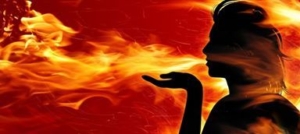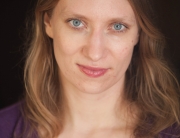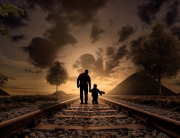Surely there is something in the unruffled calm of nature that overawes our little anxieties and doubts; the sight of the deep-blue sky and the clustering stars above seems to impart a quiet to the mind.
Jonathan Edwards
I said to my teacher, “I do not trust the world. It is prone to earthquakes. With a gentle heart I’ve faced the void, and seen the dark indifference to suffering that encompasses creation.”
My teacher smiled. “Trust is not about looking for something to take care of you,” he said. “It has nothing to do with the idea that things will be all right, or you’ll be able to meet your desires. Trust is much greater than that.
“Trust is about meeting yourself. Encountering the great sustaining light within and forever relaxing into it. Trust by accepting the world is okay as it is, and coming in.
“To do this surrender the need to fix anything, or to promote a need. Drop your energy into where all is well, and trust that space. You can stay here and be well, regardless of earthquakes.”
In my mind I saw a chaotic grid of light filling the world, struggling against itself. As I watched the light then fell into points upon the grid, each point representing a person. The grid became balanced, and in the spaces between the points of light I witnessed great love arise. I saw world peace made manifest by people trusting it was okay to let go.
“It is one thing to know that love is all there is, another thing to trust it.” My teacher said. “What happens for you, in this moment, when you trust?”








I’ve come back to this post a few times, at the same time bothered and intrigued. The idea here certainly goes against the grain of how we normally think of trust. Trust seems to need an object, as in, I trust that . . . or I trust in . . . . The problem with that is there does not seem to be such an object with which to entrust our whole being, with all our existential suffering and fear and aloneness. But we long to have something outside of ourselves and greater than ourselves to trust—or at least to have the peace that would give us. There is a hint at the end about an all-pervading love. Perhaps that is the worthy object of trust. But whether this kind of trust has an object or not, it certainly must transcend or envelope all our suffering and injustice, unmet needs and desires, and incompleteness. This doesn’t make sense to the heart. But maybe the heart can learn it in time, with the right nurturing.
I think the difference between how I’ve described trust here and how we might be used to hearing it is that I’m referencing trust in an internal state of Being, vs. an outside force. Ultimately, to the extent I understand it at this moment, the Higher Power is best experienced as a Being-ness within.
My experience is that by learning to feel into and trust an internal state unrelated to external circumstance, we learn to trust the world. My guidance is to develop awareness of the eternal love within, and trust in that.
It sounds like you are saying there is something transcendent in which to trust—an eternal, all-pervading love, might you say?—but that they way to know it is to discover it “within,” in the depths of our own being; to discover that it is already there, that we are already rooted in it, and to live out of that rootedness. So it is not a question of “it” actually being within or without, but a matter of a learning to live in a certain mode of being that you describe as an “internal state” and as a certain “awareness.” Is that fair?
Of course, all we can really do intellectually is grasp for analogies, which are easily exhausted of their meaning without practice and experience.
Yes, what you describe is exactly what I hope to convey. There are meditations to help take this beyond the level of intellectual theory and into an actual, physical experience.
If you are interested and would like to contact me by e-mail, I can send you recordings of meditations I’ve led that do this, you may find them helpful. It’s difficult to trust what do we not first experience for ourselves.